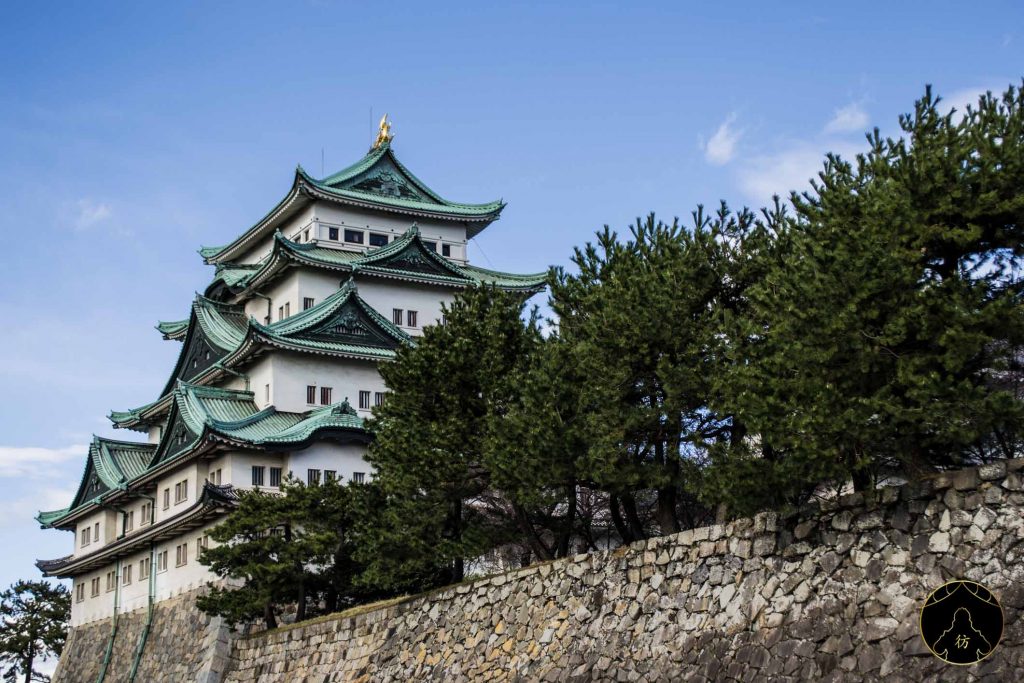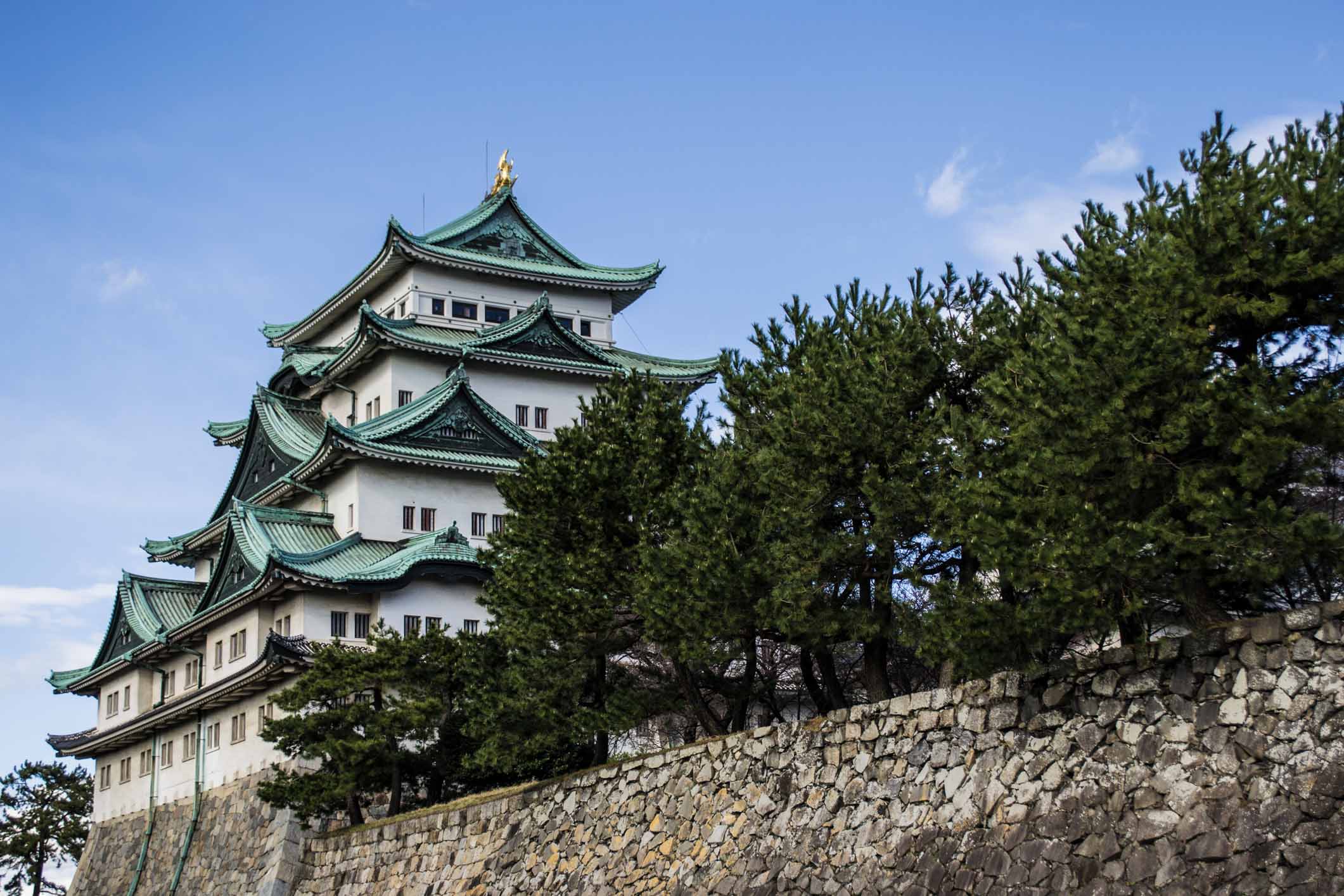I must say I found myself in Nagoya pretty much by chance. I was planning to stop over there then head to the Kansai region from Tokyo. But after a few hours, I quickly decided to stay for a few days. And I’m really glad I did!
I quickly learned on the internet that the city was not so much visited by tourists even though it has many great places to discover. That’s why I put up this list of the 10 best places that I’m sure will make you want to visit Nagoya. As always, let’s first go over a few practical tips as far as travel and accommodation are concerned.
How To Get To Nagoya?

If you’re going to Nagoya from Tokyo, the quickest and most convenient way is the Shinkansen, the Japanese high-speed train. The trip lasts between an hour and a half to two hours and the ticket costs about 11,000 yen or about $98. Here are two possible routes you can follow according to Hyperdia:

If you have purchased a Japan Rail Pass, it will not cover Nozomi Shinkansen lines (see route 4 in the picture above). You’ll just have to use the Hikari Shinkansen as proposed with route 5.
Where To Stay In Nagoya?

If you are on a budget, I recommend the Wasabi hostel which is one of the cheapest ones in Nagoya. The staff is super friendly, the dorms are clean and comfortable, and the hostel is only 5 minutes away from Nagoya Station. The hostel also offers soda, green tea and miso soup for free! It also rents bicycles for 500 yen a day ($4.5). Book your spot early though! It gets sold out pretty quickly.

If you’re travelling with friends and can afford better accommodation, you can book at the Red Planet Nishiki which is a modern hotel located in Nishiki. A night in a double room costs about $70 to $80 which is a very good price considering the quality of the services the hotel offers.

If you’re looking for a more authentic accommodation experience, why not book a room in a ryokan? In Nagoya, ryokan are not expensive. In Kyoya Ryokan, you can sleep on futon and tatami mats and have a view of a beautiful Japanese garden. Nothing compares to the serenity of a ryokan, really.

If you want more information about Ryokan, check out this article too: What is a Ryokan.
The 10 Best Things To Do In Nagoya
You’re now ready to travel so let’s discover the 10 best things to do in Nagoya Japan:
- Nagoya Castle
- Sakae District
- Tokugawa Garden
- Tokugenji Temple
- Tsuruma Park
- Nittaiji Temple
- Togaiji Temple (Green Daibutsu)
- Osu Dori Shopping Street
- Koshoji Temple
- Yamazaki River
1. Nagoya Castle

- Exact location: https://goo.gl/maps/AcdzAVe51no
- Opening hours: 9AM to 4:30PM
- Entrance fee: 500 yen ($4.5)
Nagoya Castle is undoubtedly the most popular attraction of the city. Along with Himeji and Kumamoto, it is one of the most beautiful castles in Japan. It was built in the early 17th century, during the Edo period and under the instructions of the Tokugawa Shogunate.
Nagoya Castle had a strategic location because it was on the Tokaido road that connects Osaka and Kyoto to Tokyo (former Edo). It was partially destroyed by American air raids around the end of World War II. After the war, Japanese authorities undertook repairs and renovations that ended around 1959.
What’s particular about Nagoya Castle is that it has two kinshachi on its roof. Those mythological creatures have the body of a fish and the head of a tiger. It is said that they can breathe fire so they can therefore protect against it. The kinshachi of this castle are known to be the largest of all kinshachi in Japan, measuring about 2.6 meters long. There’s a replica of the creature inside the castle:

Strange creature, isn’t it? You will also find other ancient objects inside the castle but the view from the top is what I liked the most.

There’s so much more to visit in this city so let’s move on!
2. Sakae District

Exact location: https://goo.gl/maps/VPM6XJ5dwWq
The district of Sakae is one of the liveliest areas of the city. It is also one of the best spots to contemplate the beautiful Nagoya Tower (TV Tower) as you can see in the picture above. There’s also a huge shopping mall in the shape of a spaceship called Oasis 21 there. It’s called Spaceship Aqua for a reason!

3. Tokugawa Garden

- Exact location: https://goo.gl/maps/MJX5kuzF1g62
- Entrance fee: 300 yen ($2.5)
- Opening hours: 9:30AM to 5:30PM (closed on Mondays)
Let’s move on to a much more peaceful and quiet place. Tokugawaen literally means Tokugawa Garden. The garden was built around the year 1695 and meant to be a retreat for Lord Mitsutomo who was the leader of the Tokugawa Gosanke at the time.
Like the city castle, the Tokugawa Garden was partially destroyed after the World War II bombing of Japan. Many renovations were carried out and this beautiful garden now surrounds Ryusenko Lake. I went there during spring season and could enjoy the beautiful sakura and plum blossoms called ume.
4. Tokugenji Temple

- Exact location: https://goo.gl/maps/pdh2nCArpLx
- Entrance fee: Free
Right next to Tokugawa Garden is the beautiful Tokugenji Buddhist temple. It is home to an old wooden building and is known to have a reclining Buddha statue. This posture is also called the Nirvana, which is the ultimate spiritual goal for any Buddhist. The statue lies inside the building below:

5. Tsuruma Park

- Exact location: https://goo.gl/maps/ShVQWEpU2iP2
- Entrance fee: Free
Tsuruma Park is one of the largest parks in the city of Nagoya and is easily accessible from the Tsurumai Subway Station. I went there during spring season and many people there were celebrating the Hanami festival. I was also lucky to find a Sapporo beer stand where I enjoyed myself!

The garden is covered in flowers and many buildings are architecturally inspired by the Italian Renaissance. The gazebo you can see on the left is one of those buildings; it was designed by the Japanese architect Meiji Suzuki.

6. Nittaiji Temple

- Exact location: https://goo.gl/maps/XAp1GsmPSas
- Entrance fee: Free
- Opening hours: 5AM to 4:30PM
The Nittaiji temple was one of my favorite spots in Nagoya. Seldom crowded, there’s a very pleasant atmosphere there. There are also beautiful cherry trees and an impressive five-storied pagoda.

7. Toganji Temple and its Daibutsu

- Exact location: https://goo.gl/maps/uVNA32ypdt82
- Entrance fee: Free
I found out about Toganji Temple almost coincidentally. Its entrance seemed welcoming so I got inside and wandered around the beautiful bamboo forest you see below.

Suddenly, I had the strange feeling of being watched -and I was right!

I realized there was a huge green Buddha statue at the back. Those are called daibutsu, which literally means big Buddha. For your information, there are several daibutsu everywhere in Japan and one of the best known is that of Kamakura.
The other specificity of Toganji is that it refers to several Hindu beliefs; the statue’s Indian-style pedestal and the dharmachakra (the wheel on the palm of the Buddha) are one of those references.
8. Osu Dori Shopping Street

Exact location : https://goo.gl/maps/7rCqHo7MUXt
Take a short break and have something to eat or drink in Osu Dori! You can go there during the day but the best time to visit it is during the evening. There are quite a lot of yatai, these little street restaurants where you eat mostly yakitori (grilled chicken skewers).

There are also big shopping malls in Osu Dori where you will find good Japanese restaurants and other cuisines from all over the world. I had a banh-mi, which is a delicious Vietnamese sandwich, and a taiyaki for dessert, which is a fish-shaped cake with kidney bean cream inside. Yummy!

9. Koshoji Temple

- Exact location: https://goo.gl/maps/MWVW7MZZEdM2
- Entrance fee: Free
Koshoji temple is also one of the temples that really fascinated me in Nagoya. Not knowing what to expect, I walked quietly into the temple and saw the beautiful bronze Buddha statue right in the center of the temple’s entrance door (see picture above).
The statue is about 3.6 meters high and weighs no less than 20 tons!

Koshoji Temple was also built by the Tokugawa clan in the 17th century. And as you can see, it is even more beautiful during cherry blossom season.
10. Yamazaki River

Exact location : https://goo.gl/maps/riWQvRDnhst
Let’s finish our visit of Nagoya along the flowery banks of the Yamazaki river. This river runs through the entire city and is undoubtedly the best spot to contemplate the sakura. It’s a bit like the Meguro River of Tokyo.
[+1] Atsuta Jingu Shrine
![[+1] Things to do in Nagoya Japan - Atsuta Jingu Shrine [+1] Things to do in Nagoya Japan - Atsuta Jingu Shrine](https://asianwanderlust.com/wp-content/uploads/2018/05/Nagoya-Japon-Le-sanctuaire-Atsuta-Jingu-04-1024x683.jpg)
Exact location : https://goo.gl/maps/1fkywKLi48P2
Let’s wrap up this list with a bonus shrine to visit. This is the Atsuta Jingu Shrine which is located in the middle of a huge park south of Nagoya. As in most Shinto shrines, this one has an impressive wooden torii.
![[+1] Things to do in Nagoya Japan - Atsuta Jingu Shrine [+1] Things to do in Nagoya Japan - Atsuta Jingu Shrine](https://asianwanderlust.com/wp-content/uploads/2018/05/Nagoya-Japon-Le-sanctuaire-Atsuta-Jingu-01-1024x683.jpg)
The Atsuta Jingu Shrine is one of the two most important places in the Shinto religion. It was built around the end of the 1st century and is dedicated to Amaterasu, the sun goddess of which the Emperors of Japan are believed to be the direct descendants.
The shrine is also home to the Kusanagi-no-Tsurugi, the grass-cutting sword that Amaterasu gave to Jinmu Tenno, the first Emperor of Japan.
—
I hope you enjoyed this article about what to do in Nagoya!
Nagoya is well worth a visit and I recommend you stay there at least 2 to 3 days to get the most out of it. It is located halfway between Tokyo and the Kansai region (where Kyoto, Osaka and Nara are) so make sure to stop over and visit its best attractions.
To discover other cool places in Japan or anywhere else in Asia, don’t forget to follow me on social media: Facebook Page, Facebook Group, Instagram and Pinterest.
See you around,
MF











